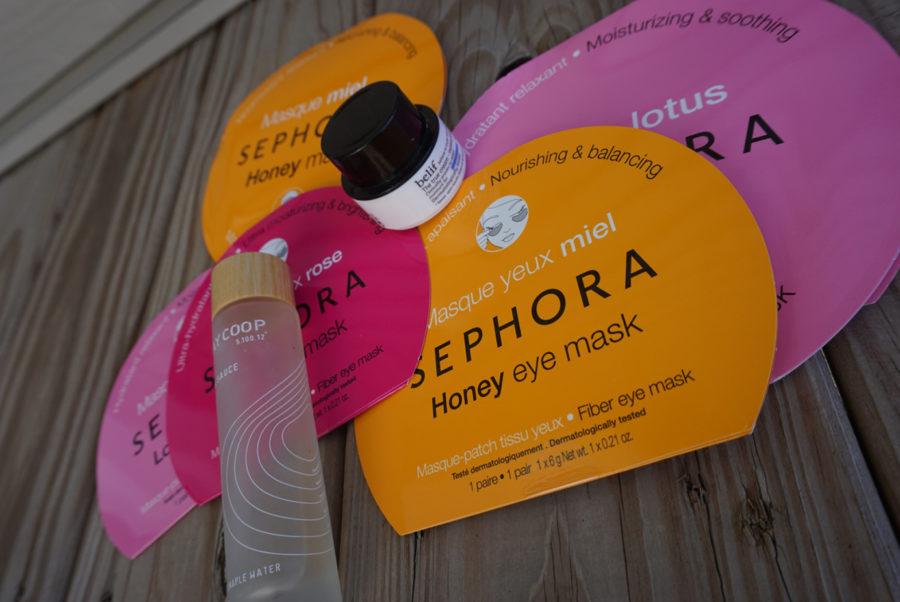Spice up routine with Korean skin care
asian skin care.jpg
March 29, 2016
U.S. skin care is so last year, but Korean skin care is a fad sweeping across the beauty world.
While being a student in college may make you think you are invincible, your skin is not.
Taking proper care of your skin is crucial, and even though makeup can cover a surprise pimple or two, keeping a healthy base is key. U.S. skin care may seem boring and mundane, but Korean skin care is innovative, quirky and housed in adorable kitschy packaging.
Korean skin care nourishes the skin and keeps it looking fresh and hydrated. While the selection is vast, looking at trends can help you identify what will work best for you.
Korean skin-care masks have become increasingly popular recently. Sheet masks are ideal if you want a no-hassle and easy skin boost. They also come in all varieties to help tailor to individual skin needs.
Many sheet masks are directed at moisturizing but others are aimed at brightening, nourishing and detoxifying. Two popular brands are Tony Moly — a Korean-based brand with packaging you won’t mind leaving on your dresser — and Sephora masks.
The great thing about sheet masks is they are relatively inexpensive for college students on a budget. Most masks cost between $6 and $10. If you have specific areas that need more attention than others, masks are available specifically for under the eyes and around the corners of your mouth.
Not all masks come in sheet form. A carbonated bubble clay mask has been taking Youtube by storm. Clay is used as a detoxifying ingredient in many masks, so there’s nothing too crazy about these new masks. The fun part is the carbonation portion. Videos show people’s masks bubbling up to a puffy and fluffy finish. The carbonation exfoliates the skin and is an alternative to those nasty beads that are now illegal in the United States.
Korean skin care uses ingredients that you might not find in your typical Neutrogena or Biore, such as snail. Yes, like the little critter that Spongebob so infamously called his pet. The specific ingredient is an extract taken from snail mucin, which is the slimy substance that helps snails heal cuts on their bodies from their daily travels. Snail mucin helps replenish moisture and aid in cell regeneration, which can help fade scars from acne and smooth uneven complexions.
Another unusual ingredient is bee venom. While getting stung by a bee on Central Campus doesn’t sound ideal, bee venom is a great ingredient for skin care. Bee venom contains melitten, which has anti-inflammatory properties.
The venom is used as an anti-aging ingredient, and some people even use it as a natural alternative to Botox. Many people don’t start thinking about anti-aging products until it’s too late. Incorporating anti-aging products into your skin-care routine while you are in your 20s will make your 50-year-old self and skin thankful.
These are just some of the Korean skin-care products and ingredients that are available. Everyone’s skin is different, and just like U.S. skin care, every product won’t work for everyone. Sephora.com and Sokoglam.com are great sites to start looking for different products. Reading product descriptions and reviews will help you narrow the products that will work best for your skin. Korean skin care provides endless options that can be specifically tailored to spice up your skin care for spring.
















